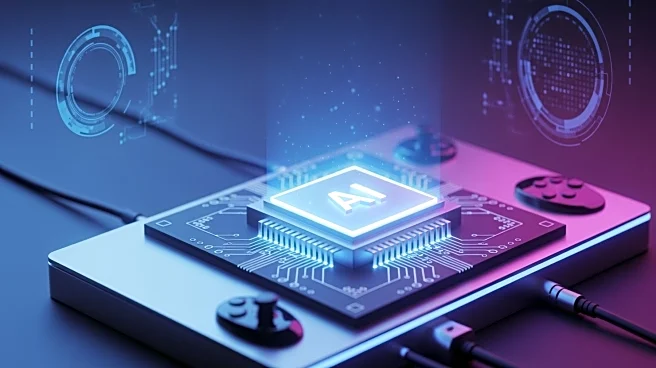What's Happening?
Strauss Zelnick, CEO of Take-Two Interactive, has shared his perspective on the role of artificial intelligence (AI) in the gaming industry. Speaking at the Paley International Media Summit in Silicon
Valley, Zelnick described AI as a valuable tool but cautioned against viewing it as a creative miracle. He emphasized that AI, including generative models like Microsoft's MUSE, is primarily a combination of large datasets and computational power, functioning as a predictive model rather than a source of original creativity. Zelnick likened AI to an easel or chair for an artist, supporting the creative process but not replacing the artist's vision. He acknowledged AI's potential to accelerate game development but warned against overestimating its capabilities to independently create hit games.
Why It's Important?
Zelnick's comments highlight a critical discussion in the gaming industry about the role of AI in content creation. As AI technology becomes more integrated into game development, understanding its limitations is crucial for managing expectations and guiding investment. While AI can streamline certain processes, the creative essence of game design remains a human endeavor. This perspective is significant for developers and investors who might be tempted to over-rely on AI for innovation. By clarifying AI's role, Zelnick helps set realistic expectations, ensuring that the industry continues to value human creativity and innovation alongside technological advancements.
What's Next?
As AI continues to evolve, gaming companies will likely explore new ways to integrate it into their development processes. However, the industry must balance technological advancements with the need for human creativity. Stakeholders, including developers, investors, and consumers, will need to remain informed about AI's capabilities and limitations. Future discussions and developments may focus on how AI can best complement human creativity without overshadowing it. Companies like Take-Two will play a pivotal role in shaping these conversations and setting industry standards.
Beyond the Headlines
The ethical implications of AI in gaming also warrant consideration. As AI tools become more sophisticated, questions about authorship, intellectual property, and the value of human creativity will become increasingly relevant. The industry must navigate these challenges carefully to ensure that AI enhances rather than diminishes the role of human creators. Additionally, the cultural impact of AI-driven content could influence consumer perceptions and expectations, potentially reshaping the gaming landscape.









